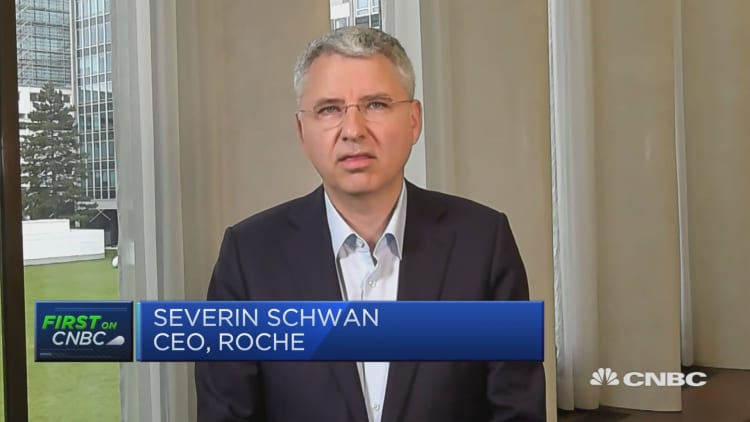
People who have recovered from Covid-19 are "very likely" to be immune to the virus, according to the CEO of Swiss pharmaceutical giant Roche.
CEO Severin Schwan told CNBC's "Squawk Box Europe" on Monday he believes those who had already had the coronavirus would now be immune to the illness — but he pointed out that more research was required.
"We know from other coronaviruses that it's very likely as soon as you have gone through an infection you will also acquire immunity," he said. "But this still, nevertheless, has to be proven over time. We need studies to really see whether those people who have been infected once are subject to reinfection. But there's a high likelihood that this will be the case."
Schwan's take on immunity to Covid-19 came after South Korean scientists concluded it was impossible for the virus to reinfect humans.
There had been concern that people were appearing to fall ill with the coronavirus a second time in Japan, China and South Korea — but researchers from the South Korean Centers for Disease Control and Prevention said last week that this phenomenon had resulted from testing failures.
However, the WHO said in late April that there was not enough evidence on reinfection to justify the issuance of so-called "immunity passports," which would allow those who had already had the virus to return to normal life.
Antibody tests
On Sunday, Roche announced that its coronavirus antibody test had received emergency use authorization from the U.S. Food and Drug Administration and would be made available in the U.S. and markets accepting the European CE standards mark.
The company said its antibody test is at least 99.8% accurate in detecting antibodies to the virus, meaning it can detect whether an individual has been exposed to Covid-19.
Schwan told CNBC on Monday that Roche will supply antibody tests this month "in the high double-digit millions," with the firm looking to ramp up those numbers over the year.
"It's highly reliable, it's a very precise test, and indeed that has been an issue with the first generation of tests," he said. "So now, patients and societies can rely on a highly, highly precise test."
He also said the tests would play an important part in helping countries come up with strategies to reopen their economies from lockdowns.
"Antibody testing allows broad testing so we get a much clearer picture of how much the pandemic has spread, whether infection rates continue to increase or decrease, and over time as soon as we know whether we also acquire immunity it will allow people to return to work and to normalize our societies," Schwan said. "So I think they're really important — it's a big step forward."
Roche's new test can be used with existing lab instruments, with the company alone having more than 40,000 platforms worldwide that can be used to perform the antibody tests.

